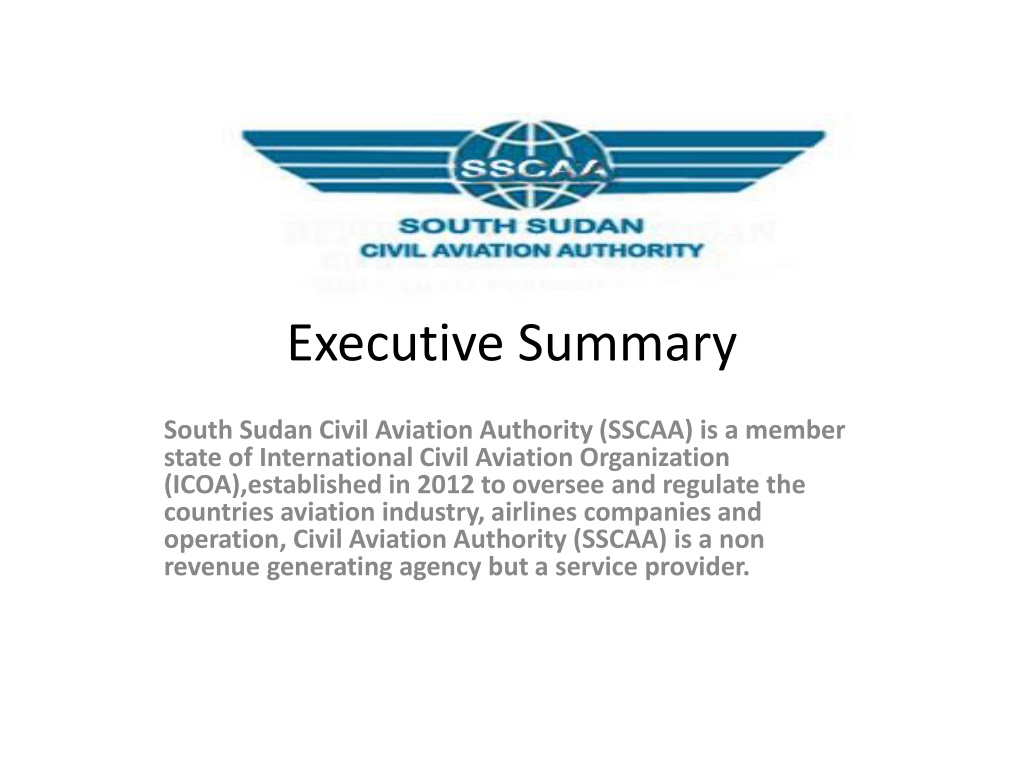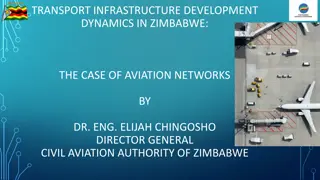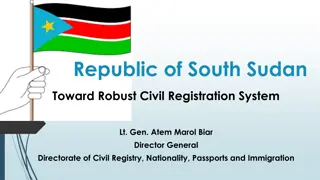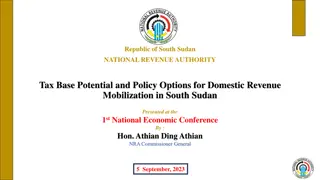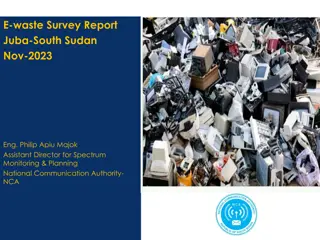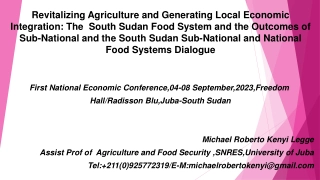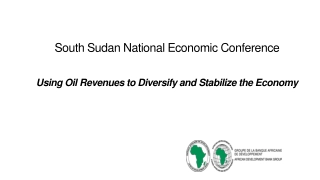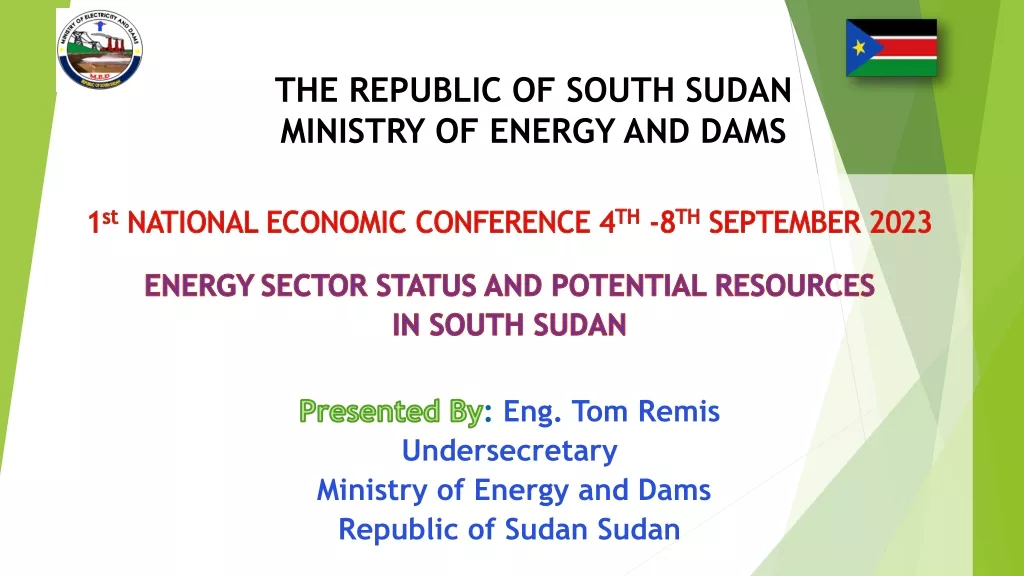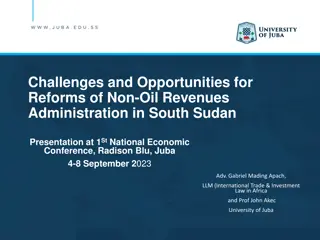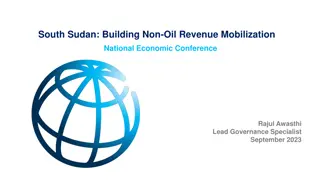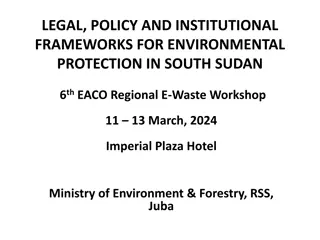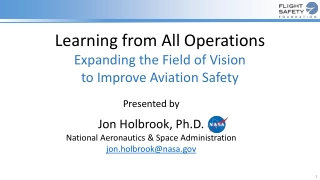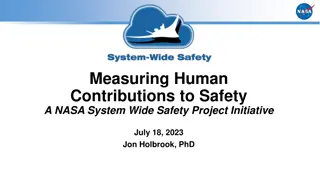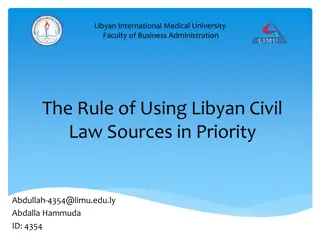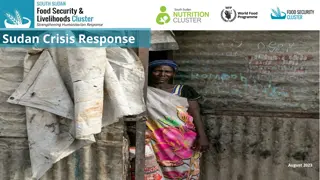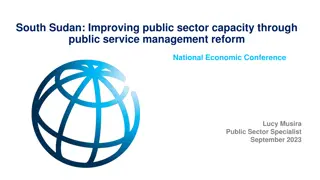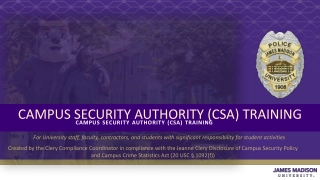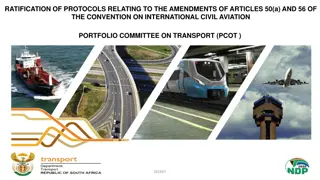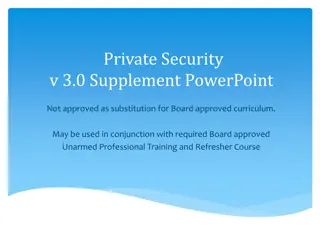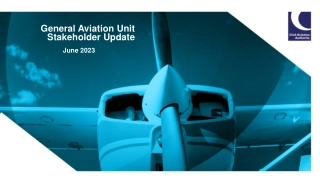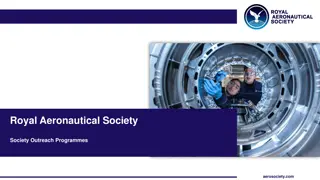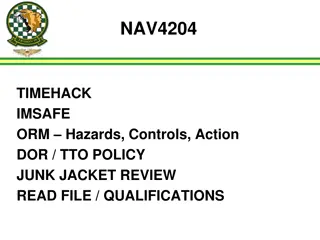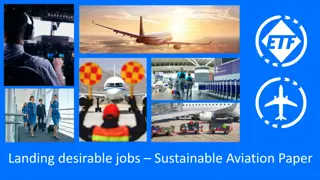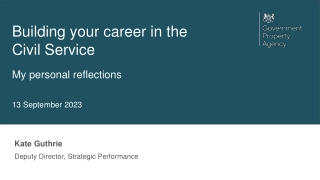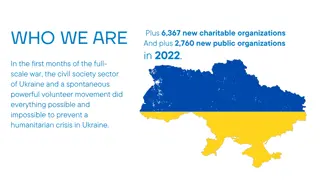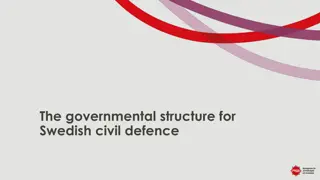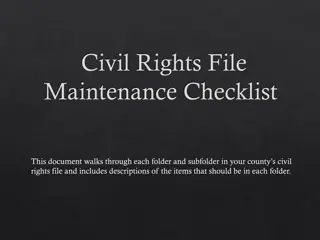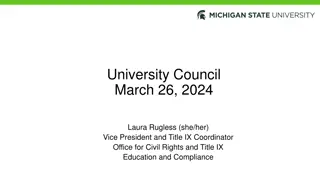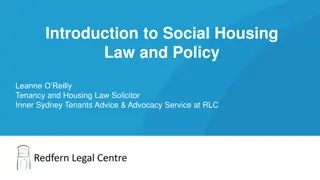South Sudan Civil Aviation Authority Overview
South Sudan Civil Aviation Authority (SSCAA) was established in 2012 to regulate the aviation industry in South Sudan. As a member of ICAO, SSCAA aims to provide efficient, safe, secure, reliable, and affordable aviation infrastructure and services. Challenges include financial autonomy and meeting ICAO standards. Investment opportunities exist in aerodrome development, air navigation systems, air carriers, agricultural exports, and mining. Collaboration with various ministries and entities is crucial for SSCAA's success.
Download Presentation
Please find below an Image/Link to download the presentation.
The content on the website is provided AS IS for your information and personal use only. It may not be sold, licensed, or shared on other websites without obtaining consent from the author. Download presentation by click this link. If you encounter any issues during the download, it is possible that the publisher has removed the file from their server.
Presentation Transcript
Executive Summary South Sudan Civil Aviation Authority (SSCAA) is a member state of International Civil Aviation Organization (ICOA),established in 2012 to oversee and regulate the countries aviation industry, airlines companies and operation, Civil Aviation Authority (SSCAA) is a non revenue generating agency but a service provider.
South Sudan Civil Aviation Authority Headquarters
Overall Objective The overall objectives of South Sudan Civil Aviation Authority is to provide the efficiency, Safety, Secure, Reliable and affordable and fully integrated Aviation Infrastructure and Service delivery.
challenges Financial Autonomous to meet the Membership shares; International Civil Aviation Organization (ICAO), Civil Aviation Safety and Security Oversight Agency (CASSOA), Africa Civil Aviation Commission, (AFCAC), European Aviation Safety Agency (EASA) This roadmap qualify Civil Aviation Authority (CAA) to meet the standard and best practice of ICAO as member state. Securing of upper Air space 240 feed and above (need political support)
Investment Opportunities in the Aviation Sector Aerodrome (Air Ports) Development (Runway, Tower, Fence and infrastructure) Air Navigation System (ANS), equipment, facilitations and personnel (Control of Air Space) Air Carrier (Aircrafts, Presidential Jet, National and Commercial) Service delivery: Export (domestic animal resources-cows, Sheep's, goats, chickens and non domestic animal resources- elephant tone etc.) Agricultural product Export ( Coffee, Gum Arabic, Fruits, vegetables, crops etc.) encourage light industries Mineral and Mining Export (Gold, Diamond, etc.)
Partnership Ministry of Commerce and Trade Ministry of Industry and Mining Ministry of Agriculture and Animal resources Ministry of Defense (Air Defense) Ministry of Foreign Affairs Ministry of Transport National Security (Security, CID, Custom, Immigration, wile life and health) through MOU
Investment Policy Recommendation GOSS Signs Bilateral and Multilateral agreement on Business with various Countries GOSS grantee Security for Investors both national and International (air carriers, personnel, equipment, facilities etc.) GOSS to look in to Harmonization of Investment policies (to attract more investment) Avoiding percentage deal before an investment to happen (discourage investment) GOSS to encourage all Public and organized force to be involve in investment project GOSS to limit interference
Engagement and Outreach Civil Aviation Authority engage in the Air carrier registration on the Aircraft Operation Certificate (AOC) and Aircraft Operation Permit (AOP) Engagement with Ministry of commerce and trade to free zone infrastructure (Storage) Thank You
